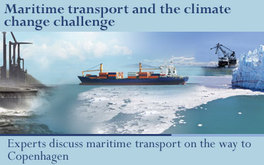- Home
- Case for Action
- IMFUND
- Solution - 3rd generation
- Buy-in
- AGF
- Achievements
- Awards
- Negotiations
- Bali 2007
- Bangkok 2009
- Barcelona 2009
- Bonn 2008
- Bonn 2009
- Bonn 2011
- Bonn 2013
- Brussels 2008
- Cancun 2010
- Copenhagen 2009
- Doha 2012
- Durban 2011
- Geneva 2009
- Lima 2014
- London 2008
- London 2009
- London 2010; 1
- London 2010; 2
- London 2011
- London 2012; 1
- London 2012; 2
- London 2013
- Montreal 2013
- Panama 2011
- Paris Goals 2016
- Poznan 2008
- In limbo ...
- Presentations
- Historical
- Search
- About
@ Geneva: UNCTAD Expert Meeting
 IMERS was thoroughly debated at the UNCTAD expert meeting on Maritime Transport and the Climate Change Challenge, in Geneva, 16 - 18 February. Our formal submission
IMERS was thoroughly debated at the UNCTAD expert meeting on Maritime Transport and the Climate Change Challenge, in Geneva, 16 - 18 February. Our formal submission ![]() (0.2 Mb) and the presentation
(0.2 Mb) and the presentation ![]() (0.3 Mb) were entitled:
(0.3 Mb) were entitled:
- A levy on fuel for international shipping, which differentiates responsibilities between developed and developing countries
IMERS solution was very well received by experts from both developing and developed countries. Several experts described it as a concrete proposal to bridge the gap between the CBDR principle (common but differentiated responsibilities) and the need for a global regime for shipping emissions. Some experts called for extra research.
Another perspective of the discussions in Geneva was that the scheme would contribute to increased trade and development for developing countries. This would be achieved by reducing the disproportionally high cost of transport typical for developing countries. The greatest short-term benefits are likely to be achieved by directing some of the funding raised by the scheme to trade facilitation, as shipping efficiencies has reached something of a plateau. Considering that such funding would pull behind several times more financing from the public and private sector significant improvements would be achieved. In short, proposed climate policy would lead to green economic growth.
It has also been pointed out that the imperative to address shipping emissions is already present in at least 14 separate paragraphs of the UNFCCC assembly paper on the Bali Action Plan (FCCC/AWGLCA/2008/16/Rev.1). Half of these refer to a levy on maritime transport (shipping fuel/marine haulage). These paragraphs reflect proposals by different states and organizations. They are: 23 (c )(iii), 26(f), 65(o), 68 (c), 72(d), 72(f), 87(a), 87(b), 96, 154(a), 155 (e), 172(d)(vi), 176(e), 178(a). Our view was that a state submission on the differentiated levy is essential to both the UNFCCC and the IMO multilateral processes (as the next IMO MEPC meeting that could consider such a proposal is after the draft of the Copenhagen Protocol/outcome is needed).
The details of the meeting are available from UNCTAD, including a background paper.
The meeting's records are available:
- Report of the Meeting
 (0.3 Mb)
(0.3 Mb)
- Papers and Presentations
- Recordings of the Presentations (audio; by day)
The meeting and IMERS have been reported in several publications, including:
- Fairplay (subscription), Fuel levy aired in Geneva
- Bridges Trade BioRes, Switzerland, IMO, UNFCCC Must Work Together to Tackle Maritime Transport Emissions: Experts
- Sustainable Shipping News, Lack of consensus delaying carbon cuts
- Le Monde, France, Le transport maritime explore des pistes pour réduire ses émissions de CO2 (in French)
- Bridges Weekly Trade News Digest, Tackling Shipping Emissions Requires Greater International Co-operation: Experts
